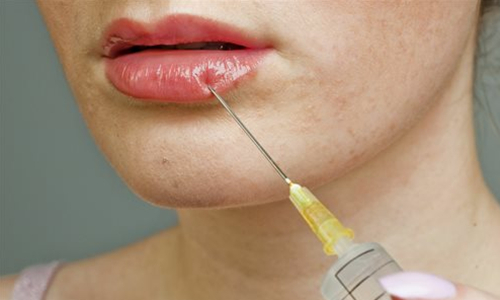China's first stem cell trading case concludes with void contract declared in Shanghai
By Huang Lanlan Source: Global Times Published: 2020/8/12 13:55:45
China’s first stem cell trading case concludes with void contract declared in Shanghai

Photo: VCG
A court in Shanghai passed a stem cell trading case at the second trial on Tuesday, declaring void a contract worth 1.05 million yuan ($150,990) held between a biotech company and individual customer.
It was China's first-ever court case involving stem cell trading, according to Shanghai No. 1 Intermediate People's Court, which tried the case. Chinese laws and regulations prohibit trading of this kind, the court noted.
From clinical research to translational applications, China has strict requirements on the establishment, filling and registering of procedures involving stem cell-related projects, said He Jian, the case's presiding judge. These projects are concerned with ethical norms and public interests including people's life and health, He said.
The court declared the contract invalid based on China's Contract Law, which states a contract shall be null and void when it damages the public interest, He said. "It applies to the stem cell trading contract in this case, which goes against public order and moral," He told the Global Times on Wednesday.
He added that China's Civil Code, which will take effect on January 1, 2021, prohibits the trading of human cells, tissues, organs and corpses in any form.
On April 5, 2018, customer Lulu (pseudonym) bought 10 samples of "stem cells from human placenta" from a man surnamed Hao, who claimed that he was a legal representative of a biotech company named Rongli. Lulu paid Hao 525,000 yuan on the same day, half of the total price of the deal.
Hao told Lulu that stem cells have beauty and anti-aging effects. Hao also promised Lulu to culture the stem cells for her, and that a place will be provided for the client to infuse the cultured cells into her body.
After giving Lulu eight samples of stem cells, the company stopped offering her the remaining 22 samples that she had ordered since February 2019. Lulu then took the company to a district-level court in Shanghai, suing it for terminating the contract and wanting the company to refund her the remaining 397,500 yuan.
The district court supported Lulu and declared the contract terminated at the first trial, but it assumed the validity of the contract.
Rongli company, dissatisfied with the sentence, later appealed to the local intermediate court to continue the contract.
Shanghai No. 1 Intermediate People's Court declared the contract invalid at the second trial as stem cell trading is banned by Chinese laws and regulations. Also, the company was neither registered as a stem cell clinical research institution, nor did it get official approval to make and sell stem cells and related medicines or products, the court explained.
The court asked the company to return Lulu the amount of 397,500 yuan.
The sentence lead to discussion on Chinese social media, with some netizens suggesting the company deserved a more severe penalty - such as the cancelation of its business license - instead of simply giving back the money it owes.
Judge He explained that the court, as a neutral between the accused and accusers, focuses on solving the contract dispute itself between Lulu and Rongli in terms of this case. "As to the company's other wrongdoings, it will be the responsibly of the local administrative departments to investigate and manage," he added.
RELATED ARTICLES: